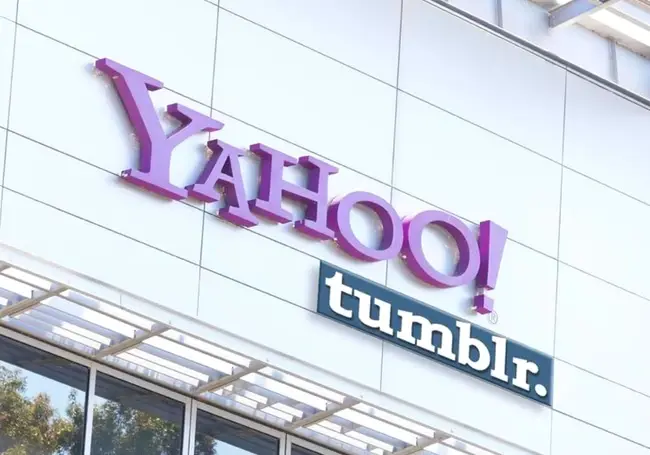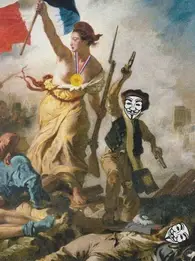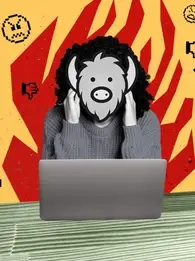
Once a vibrant hub for self-expression and diverse communities, Tumblr seemed unstoppable in the early to mid-2010s. Fueled by fiercely loyal users who considered the site an integral part of their identity the site was one of the most popular websites in the world, reaching over 100 million active users at its peak in early 2014.
But, like many once-great platforms such as Myspace, Tumblr is no longer people's go-to site, following a catastrophic mass exodus from the platform and dwindling engagement.
In this article, we’ll explore what happened to Tumblr, the online communities it fostered, its changing ownership and the controversial adult content ban.
What is Tumblr?
Launched in 2007, Tumblr stood out as a unique microblogging platform where users could share text, images, videos, and GIFs. Founder David Karp prioritized features that he believed would spark the most creativity, as well as rejected the approach of other popular platforms, which relied on incentives like money and status
Speaking at the height of Tumblr’s growth in 2012, Karp told the Guardian.
"The only real tools for expression these days are YouTube, which turns my stomach," he said.
"They take your creative works – your film that you poured hours and hours of energy into – and they put ads on top of it. They make it as gross an experience to watch your film as possible. I'm sure it will contribute to Google's bottom line; I'm not sure it will inspire any creators." Karp added.
Tumblr’s focus on user-generated content, customizable themes, and diverse communities attracted a devoted following. This was especially true for younger generations who sought a social media alternative focused on anonymity and communities separate from their 'IRL' (in real life) social circles.
Many young celebrities, including Taylor Swift and Frank Ocean, created their own Tumblr ‘blogs’ and embraced a more raw, unfiltered online presence, interacting with fans on an unprecedented level. Previously confined to niche text-based forums, fandoms exploded on Tumblr fueled by newfound connection and creativity. Whilst distinct Tumblr ‘aesthetics’ directly influenced fashion trends that dominated mid 2010s.
What Happened to Tumblr?
2013 marked the start of Tumblr's downfall when Yahoo acquired the site for over $1 billion. In a statement posted to Tumblr the then-CEO of Yahoo, Marissa Mayer promised ‘not to mess it up’.
But Yahoo's integration alienated Tumblr's core user base with intrusive advertising, content moderation changes, and a general lack of understanding of Tumblr's unique identity. This disconnect led to a sharp decline in user engagement.
While prioritizing creative user-generated content fueled Tumblr's rapid growth, it also contributed to its quick downfall under Yahoo. The presence of adult content and explicit material created difficulties in attracting advertisers, limiting revenue opportunities.
Ultimately,the acquisition proved disastrous for Yahoo. Tumblr never met its revenue targets and by 2017, Yahoo sold both itself and Tumblr to Verizon Communications.
Tumblr continued to operate under Verizon, but the platform lost its momentum, struggling to compete with new competitors like TikTok.
Tumblr’s adult content ban
2018 marked a final nail in Tumblr’s coffin. In an attempt to revitalize the platform, Tumblr implemented a controversial move: a complete ban on adult content. This included artistic expressions and educational content on health.
The decision, intended to broaden appeal, alienated a significant portion of the remaining user base. Many saw it as a betrayal of Tumblr's core values of openness and self-expression, arguing that adult content was an integral part of the platform's identity and community.
The impact went beyond user migration. Adult content creators lost their platform, LGBTQ+ communities felt unwelcome with increased censorship, and artists saw their creative expression stifled. The ban also created confusion and inconsistencies in enforcement through automatic filtering systems, further eroding trust and user experience.
While the adult content ban increased ad revenue in the short term, it ultimately finalized Tumblr's decline in user engagement and influence. The platform lost its niche appeal without successfully attracting a new audience and struggled to find a new identity.
Is Tumblr still active?

Across GenZ influencer culture, there is vibrant nostalgia for the ‘Tumblr era’, with niche micro aesthetics mimicking the tastes once heavily popularized by the platform in 2014. However, this has not significantly translated into a return to the platform.
Despite remaining active, Tumblr continues to not be profitable. Acknowledging this challenge, 'Automattic’ CEO Matt Mullenweg stated that the platform loses $30 million each year, and re-assigned the majority of Tumblr’s staff to other projects inside of Automattic.
Tumblr faced recent controversy, with Mullenweg facing accusations of transphobia following a content moderation decision.
The situation arose when Tumblr user, "predstrogen," was banned from the platform. ‘Predstrogen’ claimed the ban was from expressing frustration with Tumblr's handling of transmisogynistic harassment, while also sharing post-gender affirming surgery photos.
The issue escalated when Mullenweg publicly addressed the situation on his blog and other platforms, in doing so he shared private details about the user's account as well as other private linked accounts.
This sharing of private account details sparked outrage and prompted debates about privacy boundaries and responsible disclosure in online conflicts. Critics highlighted the power imbalance in Mullenweg's position, raising questions about transparency and accountability in platform moderation.
Concerns regarding platform moderation are further amplified by Tumblr's past controversies impacting the transgender community. These incidents have been particularly upsetting given the platform's initial role in fostering tangible online communities for marginalized groups.
“We did have an external contract moderator last year that was making transphobic moderation (and also selling moderation, criminally),” Mullenweg stated on his Tumblr blog
“As soon as we were aware that person was fired, and we later terminated the entire relationship with that contracting firm and have brought almost everything in-house (at great cost)” he added.
Tumblr's story mirrors many fallen online giants: a vibrant start fueled by self-expression, derailed by shifting ownership, mishandling of community and financial woes. Though nostalgia for the "Tumblr era" and more creative, anonymous online experience lingers, it's overshadowed by ongoing controversies and shrinking user engagement.












